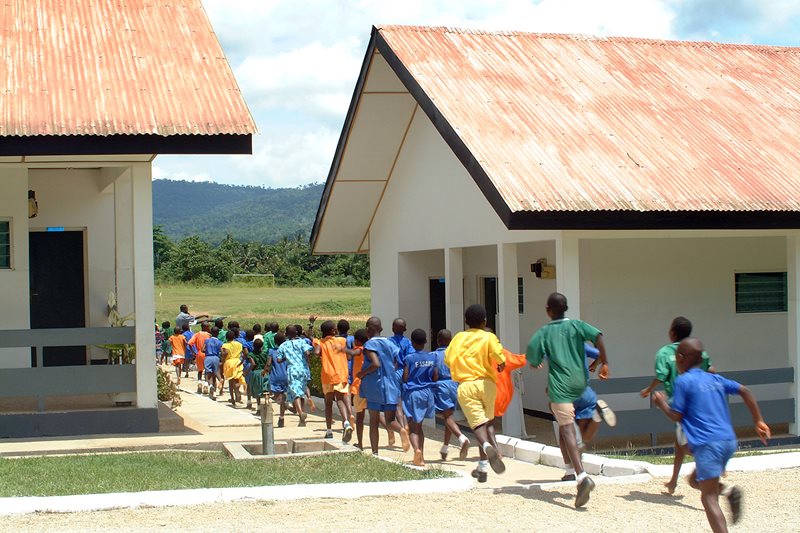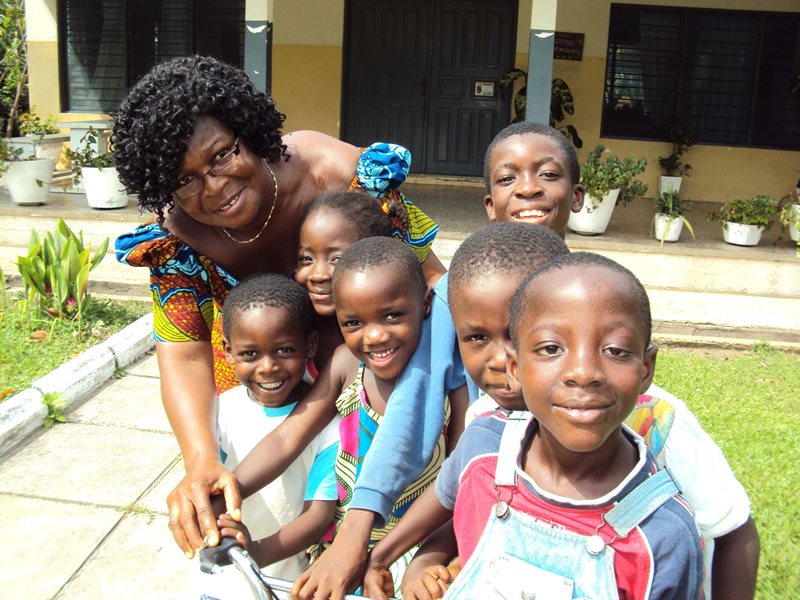Access to potable water still scarce in rural Ghana

Children at the SOS Children's Village Asiakwa on their way to the adjoining sports ground (photo: A. Gabriel)
In Southern Ghana, the living situation is generally better than that in the arid north. However, the population of Asiakwa continues to face many poverty-related challenges. Many residents of Asiakwa depend on nearby streams as a source of water. Safe drinking water is often hard to find. Many people in Asiakwa lack access to sewage systems, adequate housing and proper sanitation facilities. A growing influx of teenage girls from Northern Ghana looking for a better life in the South has been documented over the last decade. Many of them work as kayayei (head porters), carrying other people's goods for a fee. They usually do not go to school and thus miss out on the basic education that would provide them with better job opportunities later in life.
Despite recent improvements, children in Ghana's rural south depend on our support
As a result of urbanisation and the difficult socio-economic circumstances in rural Ghana, the number of adolescents moving to the country's capital Accra in search of work and better opportunities has been on the rise. In Accra, thousands of children live and work on the streets without parental care or support. Many of these children are orphans. SOS Children's Villages decided to set up an SOS Children's Village in Southern Ghana, about two hours outside of Accra, in order to provide the children with opportunities in the region where they were born.
What we do in Asiakwa

Smiling faces at the SOS Children's Village (photo: C. Ngo Biyack)
Implemented in 1992, the SOS Children's Village now comprises 12 SOS families where up to 107 children are cared for by loving SOS mothers. At the SOS Kindergarten, around 90 children from the local community and the SOS Children's Village get to spend the day in a conducive and colourful learning and playing environment. Additionally, both the children from the SOS families and disadvantaged children from the area receive quality education at two SOS Hermann Gmeiner Schools nearby.
Through our SOS Social Centre we offer counselling, psychological support, child day-care and methods to strengthen family ties. Since HIV/AIDS remains a substantial public health challenge all over Ghana, the SOS Social Centre has also been carrying out awareness campaigns in the towns and villages nearby in order to inform people about the virus and all risks associated with it. The SOS Family Strengthening Programmes represent an integral part of our organisation's activities in the region. They are a comprehensive concept aiming to enable children who are at risk of losing parental care to grow up within their own family. Many young mothers who would otherwise not be able to raise their children have successfully sought our support. At the SOS Medical Centre, both children and co-workers from the SOS Children's Village and the people from nearby towns and villages are offered medical care which is free of charge.